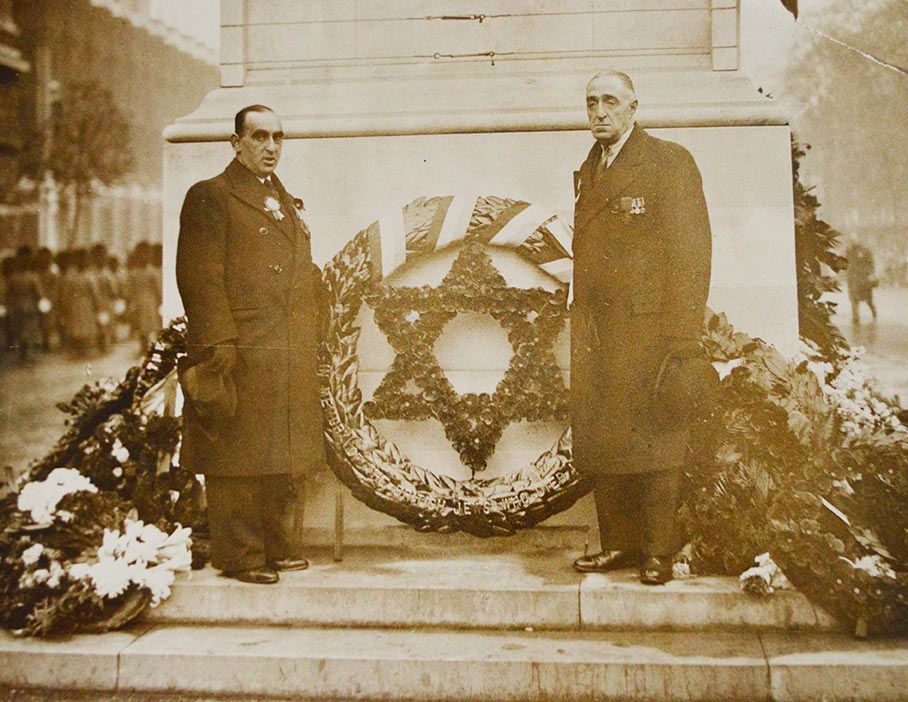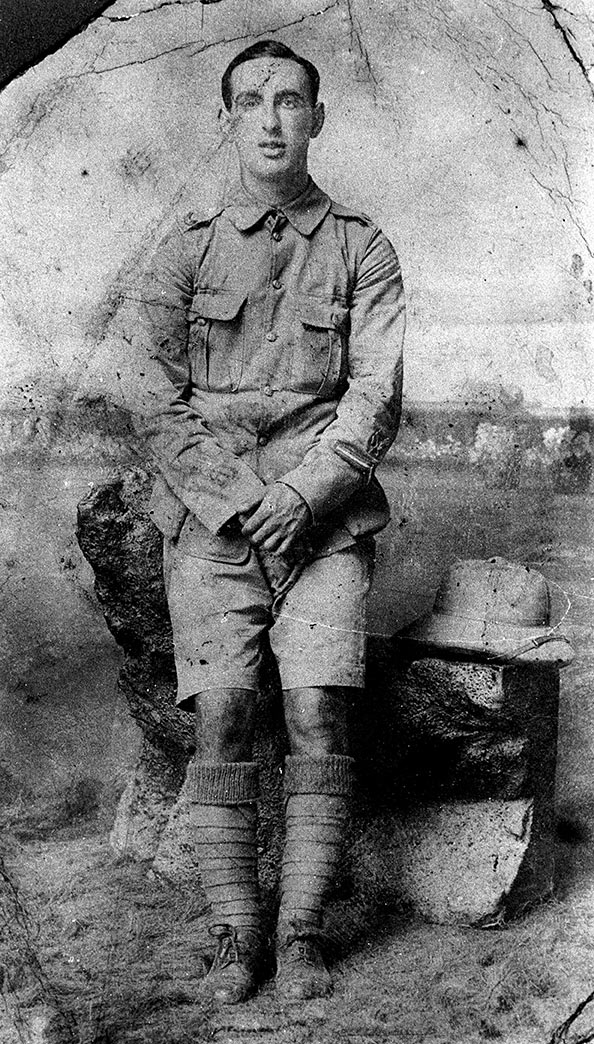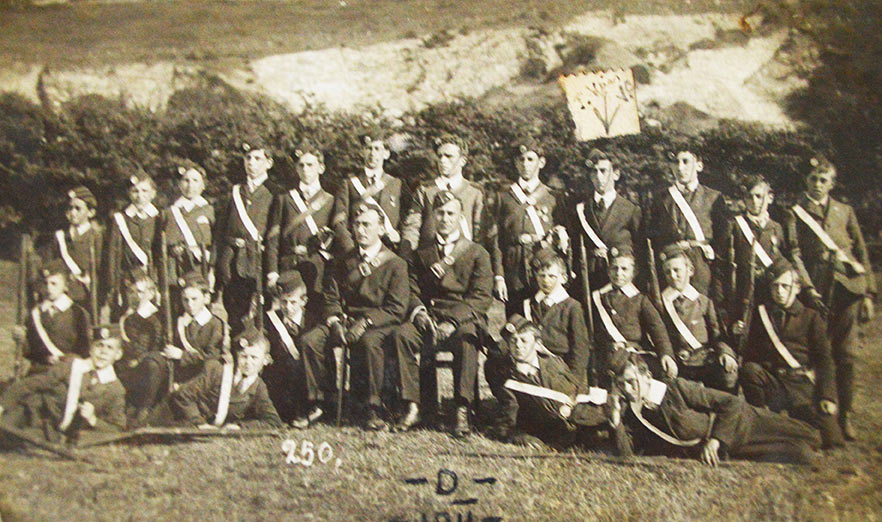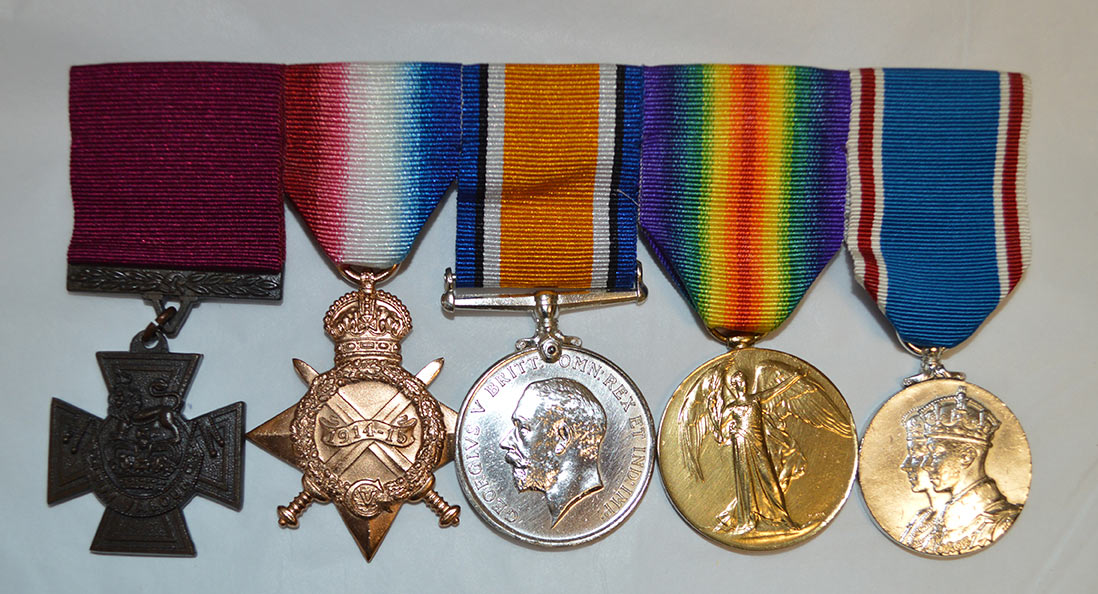Swipe to read
On the night of the 7/8 March 1917, Jack’s regiment were tasked with ferrying men across the Diala River (8 miles from Baghdad) under heavy enemy fire. Many men died, including 14 men from Jack’s pontoon. Jack showed extreme courage by towing his boat back to shore, saving the life of his officer, 2nd Lieutenant Patterson, and preventing their equipment falling into enemy hands.
His story was immortalised in an edition of Victor in 1987.
Read Transcript
Lieutenant Patterson: Watch yourself White, there’s nothing you can do.
Jack White: I’m the only bloke not dead or wounded in this pontoon Sir. Got to do something. I’ll be all right… I hope…
If I can just get into those reeds, they’ll not be able to spot us.
We made it Sir. Hang on while I get it tied up. Then we can get the dead an’ wounded ashore.
Lieutenant Patterson: White, you saved all the wounded and the equipment in the pontoon. You deserve a medal… and I’ll see you get one.
Jack White: Aw, that’s alright Sir, Only doin’ a job o’ work.
The following citation appeared in The London Gazette on 27th June 1917:
Read Transcript
“War Office, 27th June, 1917.
His Majesty the King has been graciously pleased to approve of the award of the Victoria Cross to the undermentioned Officer, Warrant Officer, Non-commissioned Officers and men:
No. 18105 Pte. Jack White, R. Lanc. R.
For most conspicuous bravery and resource.
This signaller during an attempt to cross a river saw the two Pontoons ahead of him come under heavy machine-gun fire, with disastrous results.
When his own Pontoon had reached midstream, with every man except himself either dead or wounded, finding that he was unable to control the Pontoon, Pte. White promptly tied a telephone wire to the Pontoon, jumped overboard, and towed it to the shore, thereby saving an officer’s life and bringing to land the rifles and equipment of the other men in the boat, who were either dead or dying.”
When growing up in Manchester, Jack, like many Jewish boys his age, was a member of the Jewish Lads Brigade. In April 1919, the Brigade honoured Jack with a special event where he was presented with an illuminated address by the mayor of Salford and a £310 sum of money from the JLB to place him in a business to ensure his future career.
The event was reported in The Jewish Chronicle on 11th April 1919. On the occasion Jack said:
Read Transcript
“Words fail to express my gratitude for the honours conferred upon me for the little I tried to do in the campaign. Ten years ago, I joined the Brigade, I could neither swim nor play football, or take part in any other sport. But after one year’s practice I was able to swim two miles, thanks to Mr Alex Jacobs. I owe my life to being able to swim. Life in the army was hard, but it was brightened by what I had learnt in the Bridge as being able to take his part in sport, life became much brighter. I urge the boys to do their best and they would never regret having joined the Bridge.”




